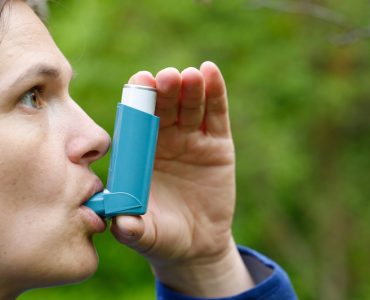Bronchodilators are drugs which are helpful in the opening up of the bronchi, which are the small ways present in the lungs through which, the movement of air occurs. This in turn results in an easier breathing.
Bronchodilator drugs are used in the treatment of certain conditions that have caused either the inflammation of the bronchi or the narrowing of the bronchi. The most common condition where the bronchodilator drugs are used includes:
Bronchiectasis where the bronchi are completely damaged
Asthma
Chronic obstructive pulmonary disease which is the damage of the lungs due to excessive smoking.
The two different kinds of bronchodilators are;
- Long acting bronchodilators – These drugs do not show any effects immediately. But the regular usage of these drugs helps in controlling the symptoms of certain conditions.
- Short acting bronchodilators – These drugs are used for providing relief to persons who experience breathlessness for a very short period of time.
The functioning of bronchodilators
The three most commonly used bronchodilator drugs include:
- Beta-2 agonists
- Anticholinergics
- Theophylline
Beta-2 agonists are drugs that can be used for both short term as well as long term. It is used through the help of inhalers.
These drugs relax the muscles of the lungs, thereby allowing the bronchi to widen. The beta-2 agonists that are used in long term medication helps in decreasing the quantity of mucus present in the lungs by increasing the cilia movement. It is normally used for treating asthma.
Anticholinergics relax the muscles of the lungs. It is usually administered using an inhaler and is used for treating Chronic obstructive pulmonary disease. But chronic cases of chronic obstructive pulmonary disease require the use of nebuliser to administer the drug.
Theophylline is used for the long term medication purposes. Chronic obstructive pulmonary disease is treated using the administration of this drug for relaxing the lung muscles. It also reduces any swelling or inflammation present in the bronchi.
Theophylline is usually administered in the form of syrup or pill. The administration of theophylline is advised only in cases where the other bronchodilators prove to be ineffective.
Side effects
Beta-2 agonists
The popularly known side effects of using this drug are;
- Muscle cramps
- Shaking in feet
- shaking in hands
- anxiety
- very fast heartbeat
Even though the side effects remain only for a few minutes, the doctor must be consulted if the side effects cause any other problems or persist for a longer time.
Anticholinergics
These drugs have less severe side effects on people when compared to beta-2 agonists. The usually found side effects are:
- blurred vision
- dry mouth
- dry cough
Theophylline
If the drug accumulates to very high level, it can result in very severe side effects which include:
- loss in appetite
- heartburn
- nausea
- dizziness
- headache
- stomach ache
- trembling
- nervousness
- vomitting
- palpitations
- seizures
- restlessness
Cautions
Beta-2 agonists should be avoided in case the patient is using corticosteroid inhaler for asthma.
Anticholinergics are not advised in men with prostrate cancer or prostrate hyperplasia.
Theophylline should not be administered in people with liver problems.











